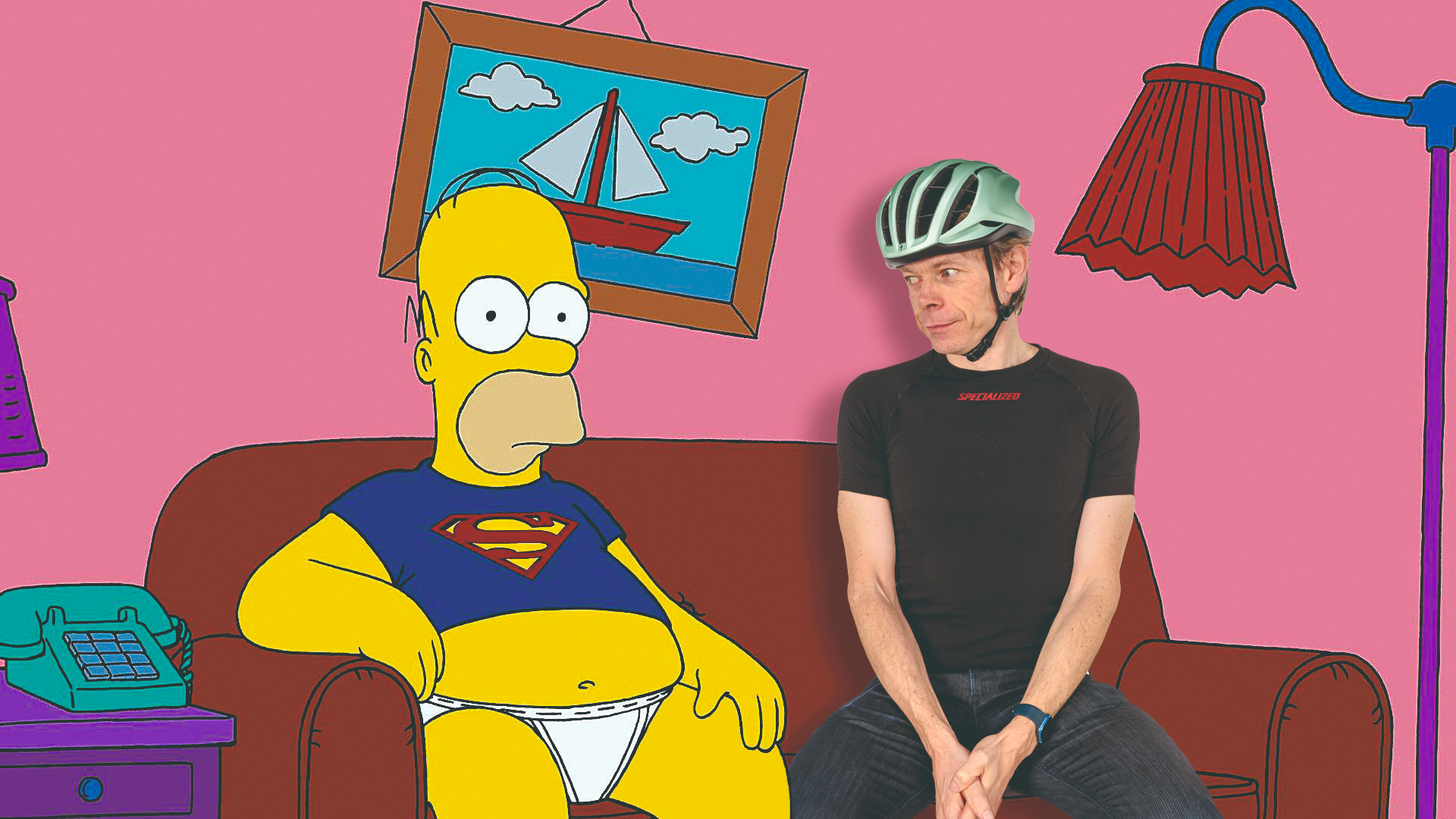
You’ll be aware that the team radio messages that they play on TV coverage are a very partial picture of events. For a start, they’re released with a substantial delay so usually what you get amounts to a crackly direction to unleash a tactic that you were able to watch misfiring in real time two villages ago.
They’re normally repetitive: “Get to the front. Why aren’t you at the front? Everyone else is at the front.”
You don’t even hear most of them, so you end up with a skewed impression of what goes on. Bike racing is in fact much less interesting than the already very dull sample of radio messages makes it appear. The other 85% of messages, the ones you don’t hear and should be grateful you’re missing, are like this: “Guys, remember to eat.” “Guys, eat now while it’s quiet.” “Guys, every 15 minutes, eat.” “Guys, feed zone in 3km. Make sure you get enough to eat.”
Eating, or more accurately, carbohydrate intake, is the invisible battle. The one we never notice happening. We are, weirdly in all honesty, more interested in the stickiness of a bottle than its contents.
Mid-race nutrition is something that has changed a huge amount over the last few years, yet it gets very little attention. This is because if you edit a magazine and run a four-page photo feature on ‘Energy drinks of the Tour de France’ you get fired. But look at it this way, 15 years ago the maximum amount of carbohydrate a rider might aim to consume, from drinks, gels or solid food, was about 70 grams an hour.
Much more than that and over the course of a long race your stomach wouldn’t cope. Sometimes its failure to cope would be dramatic. A mate of mine rode a 24-hour race and tried to do 100 grams an hour. “It was fine,” he said, “until about 12 hours in, when I spent a couple of hours in the woods.” I thought this was a metaphor. It wasn’t. He spent two hours behind a tree, in the dark.
But this has changed. Current riders frequently manage 120 grams an hour for the length of a WorldTour race.
How? Well, the technology of drinks and gels has moved on, at least as much as any other aspect of the sport. Different carbohydrates can be delivered via different mechanisms in the gut, so you can have a spread of different carbs arriving through different doors simultaneously.
Other in-race nutritional technology involves drinks that thicken partway to a gel, designed to avoid aggravating the stomach, and getting the carbohydrate straight through to the gut.
The downside is that some of the products of the current state of the art are disgusting. I once cadged a gel off a mate that was so revolting I have not spoken to him since and have deleted him from my phone. I can’t be friends with someone who could consume one of these. It was the texture that did it. And also the flavour. I think someone somewhere was just compacting slugs and putting them in wrappers.
The other thing riders do is train for eating. They ramp up their energy intake, and their gut learns to cope with it, much like any other sort of training.
You can actually train to metabolise 120g/hr of carbohydrate without riding at all. You can do it on the sofa, perhaps while you watch a race. But you’d be surprised how little fun it is as you get to the sixth hour of Milan-San Remo.
It’s also very hard to sell this nutritional lifestyle to your loving family as a worthwhile and noble pursuit. There is a Homer Simpson vibe that no amount of entering everything you eat or drink on a spreadsheet will dispel.







